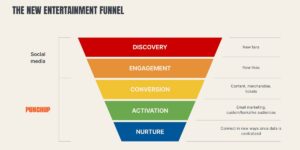Elon Musk can be cagey about his purported drug use. After bombshell reports about internal concerns over the Tesla-SpaceX-Twitter-Neuralink executive using LSD, cocaine, ecstasy, and ketamine, Musk’s line has typically been that it’s not happening. More recently, he’s shifted: OK, fine, it is happening, but it’s just ketamine for depression, and actually it’s good for shareholders. If his companies are doing well, Musk argued recently, and he’s taking drugs while running those companies, then he should stick with the drugs, for capitalism’s sake. One might pause at the logic, but Musk is hardly the only person making that calculation — plenty of people have come around to the idea that drugs are a decent work tool.
Professionals are increasingly using substances like LSD, psilocybin, and ketamine as mechanisms to improve their performance. Startup hustlers and working women say they’re turning to “magic” mushrooms to be more productive and creative, to take the edge off, or maybe just to get a bit of a hangover-free after-hours buzz. Some executives are attending luxury psychedelic retreats, where they spend a few days tripping in a forest, trying to expand and unlock their minds in ways that they hope will expand and unlock business opportunities, à la Steve Jobs. The psychedelics market is a lucrative one and expected to reach $11 billion by 2027.
Drugs used to be viewed as dangerous, a hindrance to life success, or, you know, just something you did for fun. Now they’re increasingly seen as a useful tool for work. Instead of trying to get high, people are using them to try to get ahead.
“It’s not uncommon for the public view on things to flip-flop, going from negative to, ‘Oh, wow, these things are great,’ and viewing them as potentially good for everything,” Greg Fonzo, a codirector of the Center for Psychedelic Research & Therapy at the University of Texas at Austin’s Dell Medical School, told me. “The truth lies somewhere in between, right? No drug is for everything, and most drugs are not purely negative.”
Microdosing — which means taking, say, one-tenth of a normal dose of a drug — is a trend popular among moms on the playground and workers in the office. Anecdotally, people say it helps with creativity, focus, productivity, and just feeling better on the job. Scientifically, the story gets more complicated.
The jury is still out on whether and how microdosing works, said Matthew Johnson, a senior researcher for the Center of Excellence for Psilocybin Research and Treatment at Sheppard Pratt. There hasn’t been a ton of research, and while people say in surveys that microdosing helps improve cognitive function and reduce anxiety, some placebo-controlled trials suggest that, in actuality, it may not do much.
“The science of microdosing is: So far, we don’t really know what’s going on, whether it’s all placebo effect,” Johnson said.
You could get a mushroom that has a little bit more or a little bit less psilocybin … which, depending on the activity of the day, might be more than you bargained for.
In theory, microdosing is subperceptual. It’s not like sipping a glass of wine to relax or having a cup of coffee to wake yourself up, both of which hit pretty immediately. The idea is instead to take tiny doses over time you don’t notice, which hopefully benefit you in the long run.
If people are indeed feeling something off what they ingest, it’s possible they’re not technically microdosing — they’re just getting a little bit high on the job. A glance at Reddit would indicate that unintentional at-work “oops” highs happen, which is because measuring these drugs precisely is hard.
“You could get a mushroom that has a little bit more or a little bit less psilocybin, and then you would end up having a perceptual experience, which, depending on the activity of the day, might be more than you bargained for,” said Katrina Michelle, a clinical therapist in New York and the former director of harm reduction for the Multidisciplinary Association for Psychedelic Studies.
Of course, not everyone is looking for a micro experience to improve work performance. Some people are experimenting with psychedelics on the macrodose level. Some corporate elites are seeking out psychedelic retreats to improve their leadership skills, shift their perceptions, and, in some cases, even bond with their teams.
Rob Grover and Gary Logan, the founders of the Journeymen Collective, which offers luxury guided magic-mushroom retreats in Vancouver, British Columbia, told me their company worked with a multitude of executives, entrepreneurs, and visionaries to help them elevate their businesses to “conscious businesses,” which they recognize sounds fluffy.
“When leaders become conscious leaders so that they’re aware of what’s going on around them, they have greater precision of thought, greater clarity, greater creativity that they can lead in a different way and they can lead in a more effective and efficient way,” Grover said. “So that’s where we come in and help people with a massive reset of their consciousness so that they can impact their company, their boards, their vision of what they’re here to do in a deeply impactful way.”
They work with people for a minimum of four months — one month of preparation leading up to two days of “ceremonies,” followed by three months of “integration” post-retreat. Their experiences, which start at $15,000 a person for a group session, have seen a huge boom over the past couple of years: Bookings increased 183% from 2022 to 2023.
The deal sounds pretty great: Go to the mountains, have your experience, and kill it at work. But that’s not a guaranteed outcome. Someone might trip and discover that they love their job again, but they could also decide they actually hate the corporate world and are over it.
“These medicines are not something we can necessarily have superconsistent expectations about,” Michelle said. “It’s really hard to ever say with any psychedelic medicine that this is going to have this one effect when it comes to your psycho-emotional health.”
Some executives appear to have such strong convictions about the power of psychedelic retreats that they’re bringing their colleagues and business partners along, hoping that it will bring them all closer together and push them forward. The issue of team retreats and drug use is a complicated one. Psychedelic experiences can be deeply intense and personal, not something everyone wants in a work environment. There are also questions of pressure and power dynamics in play. People around Musk, including some of his board directors, reportedly felt pressured to take drugs with him to avoid upsetting him. My boss is lovely, but I don’t really want to vomit in front of him at an ayahuasca retreat as I share my deepest, darkest secrets, nor do I want to feel like I have to in order to keep my job.
We’re all aware of corporate etiquette, and no matter how close and tight that team is, if you come to a psychedelic retreat, there’s nowhere to hide.
Justin Townsend, the CEO and head facilitator of MycoMeditations, which offers psilocybin-assisted retreats in Jamaica, told me that many of his clients say his services, which can run from $6,500 to $23,000, help them to be better leaders and perform better professionally. He’s working on launching retreats for business leaders, but it’s a prospect that entails some special considerations. If a company calls and says it wants to send five executives down, it might get awkward and difficult if not handled correctly.
“We’re all aware of corporate etiquette, and no matter how close and tight that team is, if you come to a psychedelic retreat, there’s nowhere to hide,” he said.
I asked him for advice on what to do if such a situation landed at someone’s feet. He said to look into the safety, efficacy, and legal status of the proposal, think about what your boss wants to achieve and whether there are alternative solutions, and consider your personal boundaries. If it’s not for you, he said, “just say no.”
Some of these dynamics aren’t novel. Social pressures at work have always existed — just look at happy hour. So has the idea of performance enhancement, whether via coffee (legal), Adderall (legal, depending on how you get it), or cocaine (illegal).
My main concern is that people understand the risk, any risk — bad-trip risk, psychiatric risk, or legal risk.
Matthew Johnson, senior researcher for the Center of Excellence for Psilocybin Research and Treatment at Sheppard Pratt
The type of psychedelic substances in vogue in the workplace also have a socioeconomic slant to them. Marijuana has been decriminalized in many more parts of the country than psilocybin, but you’re still likelier to lose your employment over smoking a joint on the job than you are if you eat a square of a magic-mushroom chocolate bar. You can still be fired over psychedelics, though — in 2021, a startup CEO was axed after saying he’d microdosed LSD at work. Regardless, all three are still federally illegal. With hidden fentanyl sometimes in the mix, many drugs may be extra dangerous. There are also questions about the effects that long-term psychedelic use has on the heart.
“My main concern is that people understand the risk, any risk — bad-trip risk, psychiatric risk, or legal risk,” Johnson said.
Whatever the risks and benefits, given our optimization-obsessed corporate world, some elements of drugs as a work-enhancement tool appear to be here to stay. Not to mention that there’s money to be made in the psychedelics industry, and plenty of boring or annoying jobs could stand to be made more tolerable by whatever means possible.
A lot of executives and workers have a little bit of Elon Musk in them. Figuring a little microdose here, a little trip there, might not hurt performancewise. Townsend, who runs the Jamaica retreats, told me that if anything, he thought Musk might want to pay him a visit, given how much he seems to be working and his use of ketamine for depression.
“I’d say give me Elon for a week,” he said, “and I’ll give you a different man.”
Emily Stewart is a senior correspondent at Business Insider, writing about business and the economy.




